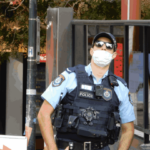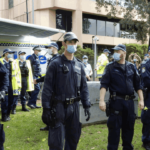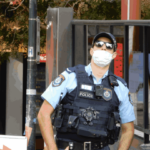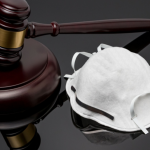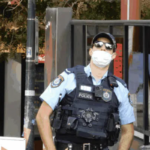Thousands of Children Fined Over Alleged COVID Breaches, Report Finds
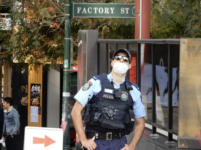
More than 3,600 children were fined during the Covid pandemic, according to a recent report by the Redfern Legal Centre, an organisation that has been instrumental in fighting for justice for those unfairly treated during the pandemic.
The Centre also found the 3,628 fines were disproportionately issued to ‘marginalised’ children – including Aboriginal and Torres Strait Islander children, children with cognitive impairments and children experiencing socioeconomic challenges, homelessness or unsafe home environments.
There are now calls for the State Government to review the fines system in New South Wales because, obviously, fining young people who are unable to pay only further disadvantages, stigmatises and alienates them.
The report also asserts the fines could contravene the Unites Nations on the Right of a Child. Under the current system, work and development orders, also known as WDOs, can be applied by Revenue NSW to young people under the age of 18. The WDO system enables people to reduce fines by engaging in unpaid work, counselling courses or treatment programs.
Why not issue a ‘caution’?
It is concerning to many that so many children were summarily fined, rather than being given a caution as is within the powers of police. But it is, of course, just another example of the authoritarian approach taken by those with decision-making powers during the pandemic in Australia.
With the ability to make new “emergency” laws without the usual democratic processes and oversight, state and territory governments caused a lot of damage to individuals, under the guise of protecting the health system from overload which has been underfunded for decades and was completely ill-equipped for hundreds of people to need facilities at the same time, which of course, was not necessarily the reality.
As has been well documented, the fines issued during Covid under “emergency health laws” which were poorly communicated to the public, were often issued haphazardly by police. There was of course, also much community debate about whether or not “fining our way out of a pandemic” was an appropriate response to the health crisis.
Many fines issued during the pandemic could be invalid
Since Covid-19 numerous legal challenges have ensued – the most recent being the case of Ms Kosciolek who was fined $3,000 for leaving Sydney without a permit. She was homeless at the time and was wanting to travel to South Australia where she had been offered accommodation.
In March this year, the Supreme Court determined that the “bare minimum test” as set out in an earlier case (Beame; Els v Commissioner of Police & Ors [2023] NSWSC 347) also applied.
The “bare minimum” test demands that, to be valid, a penalty notice must clearly state the relevant Act and provision related to the offence, enabling individuals to understand what offence they are accused of committing. In the case of both Ors and Kosciolek the specific offece was apparently intended to be s 10 of the Public Health Act; but the Act was not stated on the penalty notice. Essentially, the judgement determines that if a fine – a Covid fine or otherwise – fails to state the specific offence, the fine is invalid.
Revenue NSW refuses to withdraw fines
In March of this year when the judgement was handed down, it was considered to have implications for 29,000 fines handed out during Covid – some of which have been paid by those who were issued them. The Supreme Court stopped short of making a declaration on public interest grounds, with Justice Fagan determining that “There is no basis upon which I could conclude that making a declaration in this case, with reasons as to the consequence of the offence-creating provision not having been nominated, would resolve issues concerning other penalty notices.
“Further, there is no evidence before the court that other recipients of penalty notices wish to contest them or have applied unsuccessfully for review and may wish to renew their applications.”
At the time the judgement was made public, Revenue NSW said it would not withdraw remaining unpaid fines, or repay those who have paid fines that were ‘legally invalid’.
Revenue NSW says it will continue to ‘review’ on a case-by-case basis, which will no doubt, continue to create legal action which will add to the burden on our courts. Some fines have been refunded and others revoked – amounting to around $30 million. The amount of fines still standing come to over $17 million.
In the meantime, those responsible for the harsh fine regime, which certainly had the potential to line government coffers – former NSW Premier Gladys Berejiklian, former Police Commissioner Mick Fuller, and former Health Minister Brad Hazzard have all moved on – with no accountability for decisions made which adversely affected many of the people who live in New South Wales.
But there are loud calls from youth advocacy groups for the current New South Wales Government to ‘overhaul’ the system so that in future children are not impacted by exorbitant fines they cannot repay. And surely, with the benefit of hindsight, particularly with regard to Covid-19 pandemic fines, there is some basis for at least a review of the current system, particularly in relation to children.
At the national level, the Federal Government’s Covid Response Inquiry is still underway, with a final report to be delivered by September, however its scope does not include actions taken unilaterally by state and territory governments, which of course, makes it a ‘clayton’s inquiry’ given that during the pandemic all emergency health decisions were the responsibility of these individual governments.


